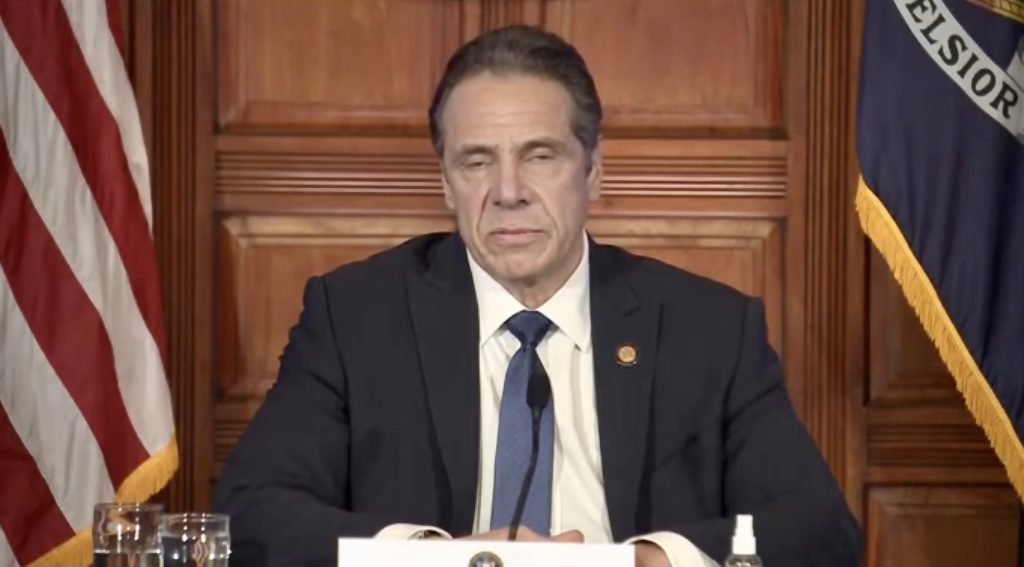Former New York Governor Andrew Cuomo is facing repercussions for his controversial actions during the COVID-19 pandemic that began in 2020. In May of that year, reports from The Gateway Pundit (TGP) highlighted the tragic outcomes stemming from Cuomo’s directives regarding nursing homes. These officials, including Health Commissioner Howard Zucker and Executive Deputy Commissioner Sally Dreslin, were tied to a significant increase in deaths among nursing home residents due to policies that required nursing homes to accept patients recovering from COVID-19, regardless of their infection status. Yaacov Apelbaum from the Illustrated Primer detailed these policies, noting their direct contribution to the spread of the virus within vulnerable populations.
The directives issued by New York’s Department of Health specified that nursing homes could not deny admission based on a COVID-19 diagnosis. Additionally, the regulations mandated the expedited readmission of residents from hospitals back to nursing homes without the requirement for testing if the resident was deemed medically stable. This blanket policy has drawn severe criticism for its recklessness, particularly during a time when protecting the elderly and vulnerable populations was critical. The alarming consequences manifested as a devastating mortality rate among nursing home residents in New York, which tragically surpassed the national and global averages, contributing to thousands of deaths.
Investigations into Cuomo’s handling of the pandemic reveal that financial motives may have influenced these deadly policies. In 2018, during his campaign for reelection, Cuomo received significant financial backing from the Greater New York Hospital Association (GNYHA), a major player in New York’s healthcare sector, amounting to nearly $3 million during the election cycle. This financial support was seen as a precursor to the legislation he signed in April 2020, which granted extensive immunity to hospital and nursing home executives from lawsuits linked to the pandemic’s fallout. Critics argue that this legislation ensured profitability for healthcare institutions at the expense of patient safety.
The consequences of Cuomo’s decisions were particularly severe for the elderly, with nursing homes experiencing catastrophic outbreaks. The Gateway Pundit has consistently reported that while COVID-19’s overall mortality rates were comparable to those of a severe flu season elsewhere in the United States, New York and neighboring New Jersey were outliers with death rates significantly higher than the national average. These statistics indicate that Cuomo’s policies directly correlated with the preventable deaths occurring in nursing homes across New York, leading to a public outcry for accountability.
On October 30, 2024, the Select Subcommittee on the Coronavirus Pandemic announced its decision to refer Cuomo for criminal prosecution based on evidence that he had reportedly made knowingly false statements concerning the nursing home crisis. This watershed moment in the ongoing scrutiny of Cuomo’s actions underscores the seriousness of the situation and the suffering endured by many families. The committee’s findings suggest that Cuomo not only mismanaged the crisis but also attempted to obscure the extent of the nursing home disaster from the public.
The gravity of the situation is encapsulated in the realization that thousands of lives were lost as a consequence of Cuomo’s misguided directives and governance during the pandemic. As the referral for criminal charges progresses, it is expected that scrutiny will continue, with many advocating for justice for the families of those who perished under these tragic circumstances. The unfolding events surrounding Cuomo’s pandemic leadership serve as a stark reminder of the critical need for accountability in public office, especially during moments of crisis that demand ethical and responsible governance.

